The Austrian value chain of the textile industry leaves more than 80% of its waste to residual waste and incineration*. In light of the European climate goals, resource-consumption and societal trends this is an urgent field of action. Circular economy therefore seems like a solution that combines economic efficiency and sustainability goals.
With the adoption of the Circular Economy Act in 2018, the European community has decided to operate more sustainably, reduce resource consumption, and move from a waste- to a circular-economy in the long term. However, its implementation in Austria is not yet sufficiently elaborated. Together with the platform bioeconomy of ecoplus, Lower Austria’s business agency, we analysed existing business models in textile recycling and identified fields of action for the local economy to evolve into circular economy.
In European comparison, Austria is currently unable to keep pace in the field of textile recycling and in the implementation of EU regulations. Projects in Austria are kept on a small scale and usually do not go beyond laboratory status. Countries such as Finland or Sweden are one step ahead and have already started nationwide initiatives.
The challenges Austrian companies in textile recycling still face locate in collection, sorting and recycling as well as a widespread cost intensity along the value chain. “The price of recycled fibers is still higher than that of original raw materials”, says Alexander Rauscher, Managing Partner of accilium. “Moreover, Austria does not have its own sorting facilities, as these are outsourced to low-wage countries. Added to this is the often inferior quality of the old textiles and the difficult access to collection points for companies. Still, circular economy in recycling is possible if the entire value chain is included.“
“New business models that focus on sustainability must rely on technological advantages such as AI, especially in the early stages”, says Michael Weingärtner, Associate Partner & Lead Digital Process Excellence at accilium. “But also long-established companies need to embrace the mindset of digital transformation to lead their businesses to an economically sustainable future. We accompany our clients alongside this path with the implementation of digital supply chains, the transformation of their business and the toolset of digital processes.”
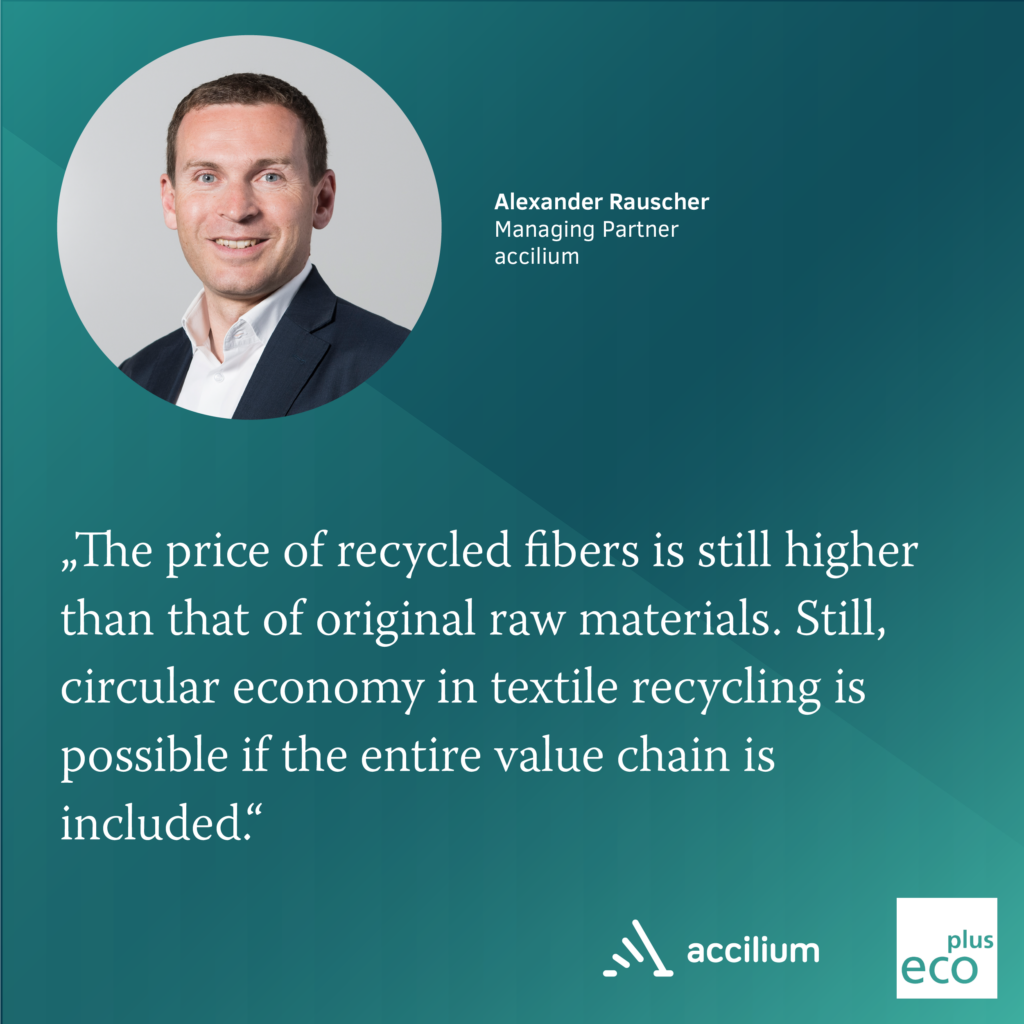
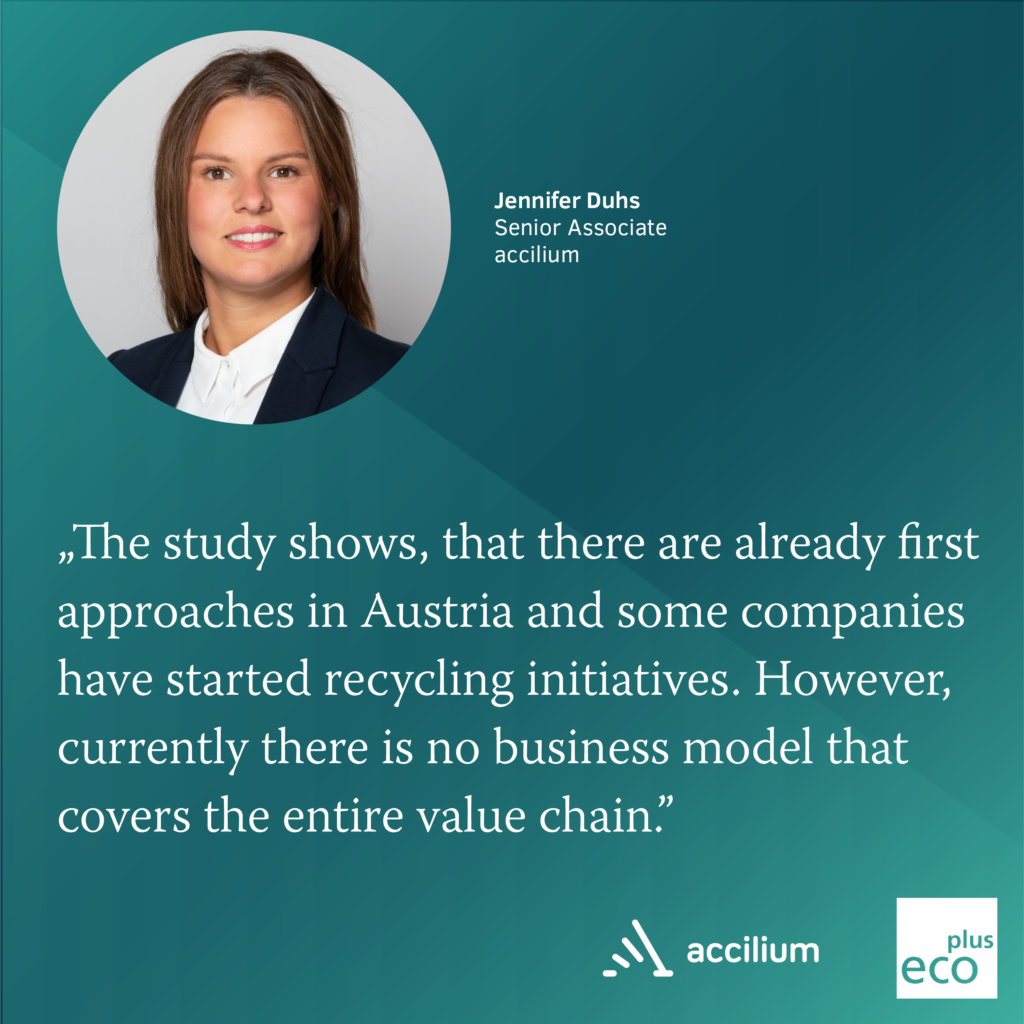
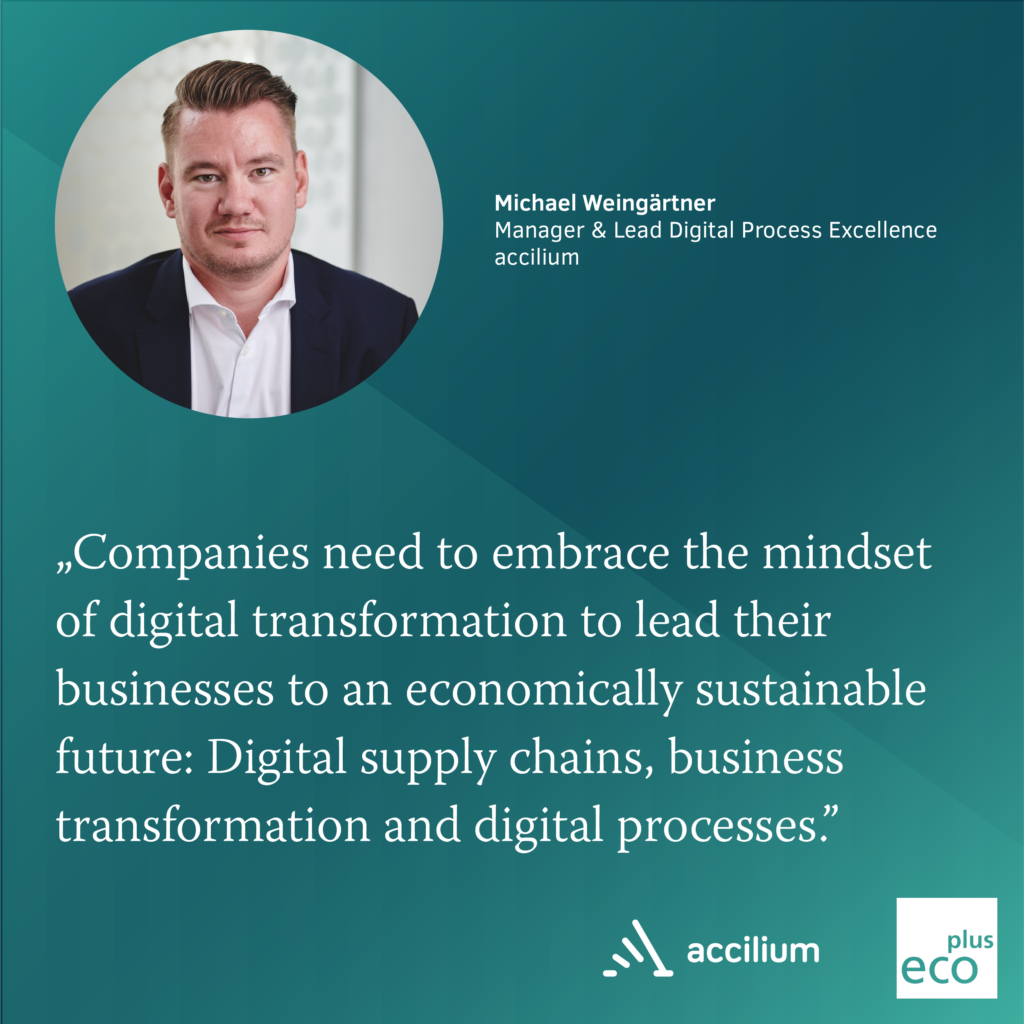
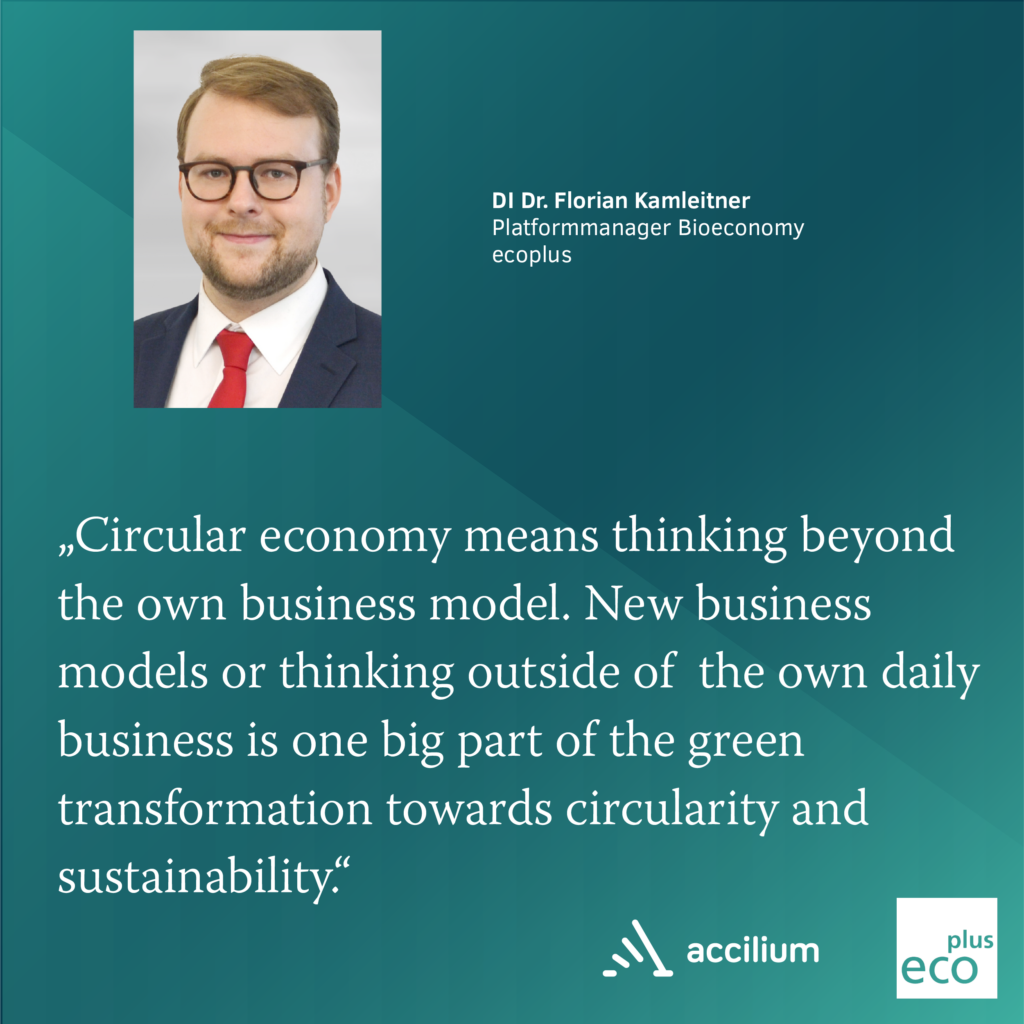
“Our study shows, that there are already first approaches in Austria and some companies have started recycling initiatives”, says Jennifer Duhs, Senior Associate at accilium. “However, currently there is no business model that covers the entire value chain. Existing business models are mainly concerned with the collection and sale of used textiles, downcycling, and other re-use models.”
The forecast shows that strong-selling fashion brands will increasingly face pressure, not only from regulators but also from societal trends. Therefore, the demand for recycled textiles will rise. Consumers will demand more and more products that come with sustainability- and zero-waste-concepts. And as the Waste Framework Directive of the European “Green Deal” was also adopted, the share of recycled textiles will gradually increase from 55% in 2025 to 65% in 2025. A new era for climate friendly enterprises?

Alexander Rauscher
Managing Partner

Jennifer Duhs
Senior Manager

Michael Weingärtner
Associate Partner
*Source: RepaNet
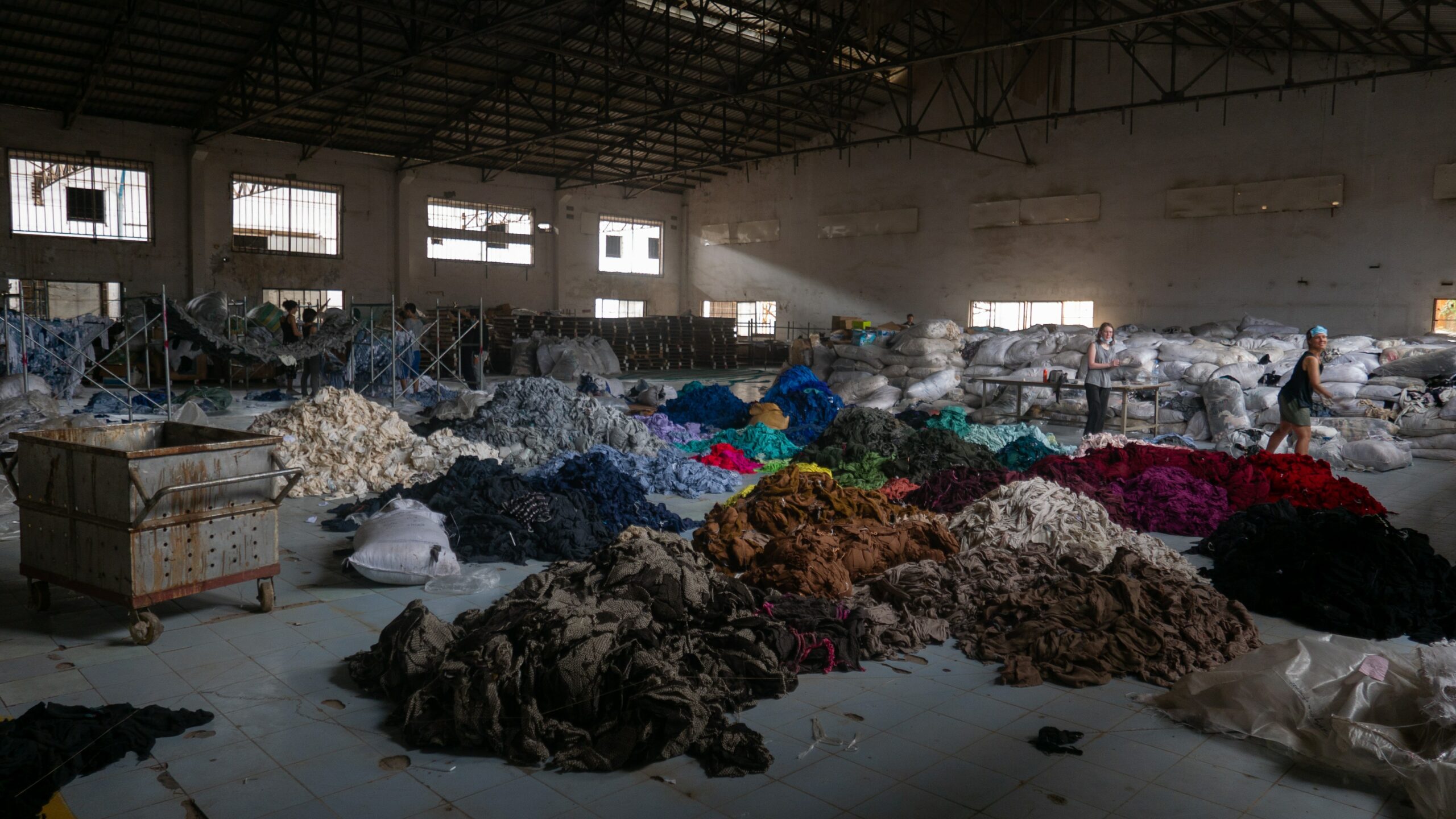
 ISO/IEC 27001:2013 certified
ISO/IEC 27001:2013 certified